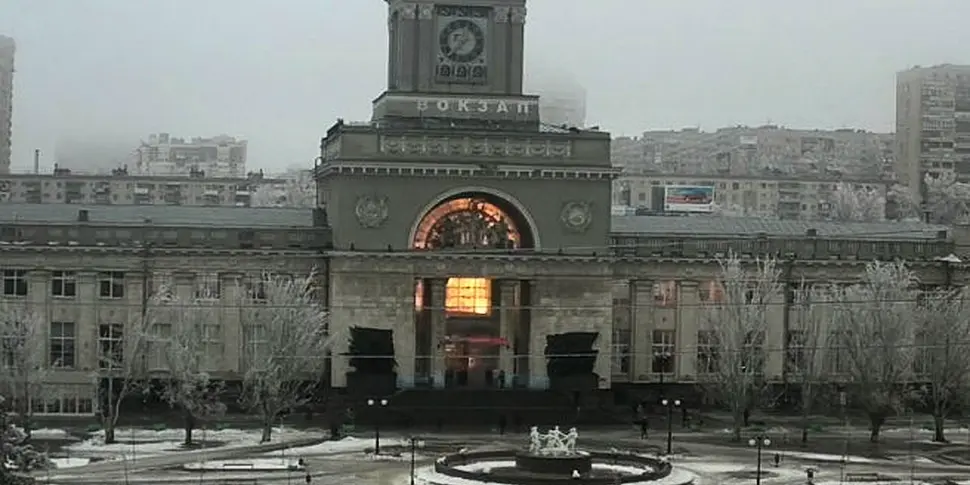The death toll from the suicide bomb attacks in the Russian city of Volgograd has risen to 34.
The regional health ministry told Russian media 60 people were injured in the attacks on Sunday and Monday.
It's not clear if the revised death toll includes the bombers.
The bombings:
An explosion on an electric bus was the second bomb attack in the Russian city of Volgograd.
Investigators described the blast, during the morning rush-hour on a trolleybus, as "an act of terror".
The National Anti-Terrorism Committee said the bus explosion was most likely caused by a bomb, but there were no further details.
 The death toll could rise further
The death toll could rise further
It came just a day after a female suicide bomber was blamed for killing 17 people and leaving dozens more injured at the city's main railway station.
Police identified the bomber as a Dagestan national called Oksana Aslanova - who had been married to two Islamists killed by Russian forces.
She apparently detonated a bomb in front of a metal detector inside the main entrance of the station. Russian television is suggesting there may have been two attackers.
That attack was the deadliest in Russia since January 2011, when a male suicide bomber from the North Caucasus killed 37 people in the arrivals hall of a busy Moscow airport.
Video of the bombing:
The explosions have put the city on edge and highlighted the terrorist threat that Russia is facing as it prepares to host the Winter Olympics in February.
Volgograd is about 400 miles (650km) northeast of Sochi, where the Games are to be held.
There was no immediate claim of responsibility for either of the attacks.
 Security has been stepped up after the station blast
Security has been stepped up after the station blast
In July, Doku Umarov, leader of an ongoing insurgency in the nearby North Caucasus region, urged militants to use "maximum force" to disrupt the Winter Olympics, a project close to Russian President Vladimir Putin's heart.
Russian authorities have pledged to make the event the "safest ever".
Foreign Affairs Editor Tim Marshall said: "It's 39 or 40 days until the Winter Olympics open, this is the opportunity for the Islamic separatists in the Caucasus region to really put themselves on the world map.
"The more this sort of thing happens, if it is indeed them, the more that cause is going to get on the front pages around the world, spoil Putin's Olympics and, more seriously, the more lives it will take."
Known in Soviet times as Stalingrad, and previously as Tsaritsyn, Volgograd is a major industrial centre with a population of more than a million people.









